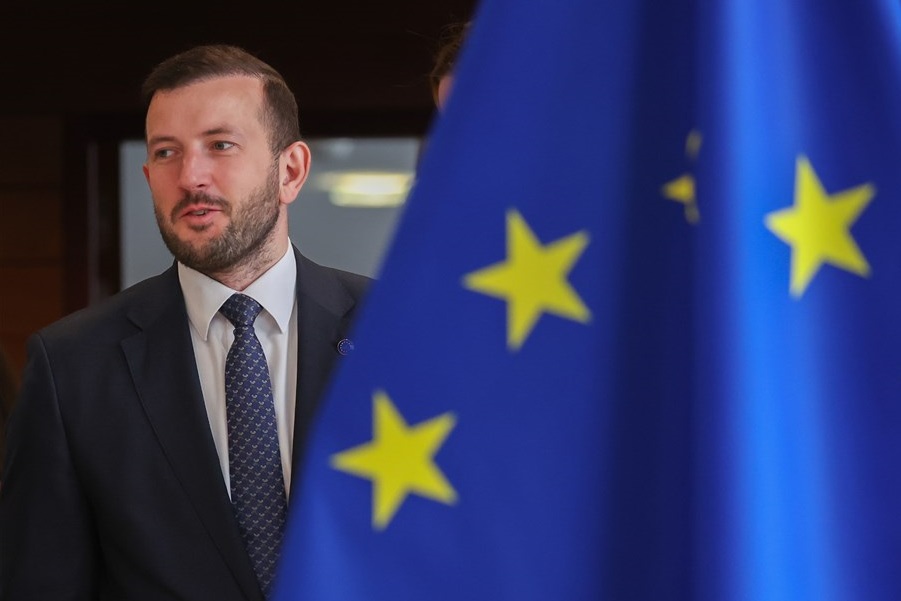11 Dec 2024

Tired Earth
By The Editorial Board

Europe’s nature is in decline, with 81% of protected habitats in a poor or bad state. To reverse this, the Nature Restoration Law requires recovery measures for at least 20% of EU land and 20% of sea by 2030 and all areas in need of restoration by mid-century.
“Today is a good day for nature,” said Swedish climate and environment minister Romina Pourmokhtari, who chaired the meeting.
“Hopefully, the final Nature Restoration Law will allow us to rebuild a healthy level of biodiversity, fight climate change and meet our international commitments under the Kunming-Montreal agreement,” she added.
The agreement reached shows the EU is serious about tackling the biodiversity crisis and reaching its international commitments, said EU Environment Commissioner Virginijus Sinkevičius.
“In so many ways, the Nature Restoration Law is not only an environmental agenda. It’s about long term investment in natural capital that feeds our economy and improves our wellbeing. Restoring nature is our best possible insurance policy in a world where climate change creates huge risks to security of supply of food and other commodities,” he added.
Restoration targets
The law sets out legally binding targets and obligations for nature restoration in specific areas, including agricultural land, forests, marine and freshwater areas, and urban ecosystems.
According to the agreed text, each EU country will need to roll out restoration measures for at least 30% of threatened habitats in terrestrial, coastal, freshwater and marine ecosystems by 2030.
This will apply to 30% of the total habitat area in need of restoration, rather than per area for every habitat group as proposed by the European Commission.
This proportion will increase to 60% by 2040, and 90% by 2050.
Speaking after the agreement, Pourmokhtari said the compromises were not about lowering ambition.
“A lot of member states have been very constructive and shown that they want to have the high ambition of the proposal,” she told journalists, saying it was about how to implement the law rather than whether to do it or what ambition level to go for.
And, although environmental organisations criticised the more flexible targets, many campaigners breathed a sigh of relief the draft was adopted at all given the strong opposition it has faced.
“Although it weakened certain provisions of the law, the Council nevertheless endorsed the importance of having a future legally binding framework to deliver nature restoration in Europe,” said Nicolas Fournier, Campaign Director for Habitat Protection at Oceana in Europe.
Strong signal to European Parliament
A majority of countries greenlit the position, although Sweden, Finland, Poland, the Netherlands, Italy and Belgium all indicated they could not support it. Meanwhile, Austria was positive, but could not back it due to a lack of regional support.
The overall positive outcome followed rejections in two European Parliament committees, a near miss in the leading environment committee and a sustained campaign against the law by the centre-right European People’s Party (EPP).
The positive signal given by ministers weakens the EPP’s campaign, according to the chair of the Parliament’s environment committee and French lawmaker Pascal Canfin.
“This is a victory for the Green Deal and a stinging defeat for Mr Weber,” he tweeted, pointing out that four out of the seven ministers hailing from the EPP supported the text while six of the nine governments that include the EPP backed it.
Speaking to EURACTIV after the agreement was found, Irish minister Eamon Ryan said the EPP needs to ask itself whether it wants to be the party which stops nature restoration or become part of the solution.
“I can’t believe that a party which is founded on strong Christian Democratic conservation values, would want to be seen as abandoning that,” he said.
Flexibility and promises of money
The draft law sparked concern about clashes with other parts of society, including food production, renewable energy and housing.
For the most part, the Swedish Presidency managed to smooth out concerns. For instance, the final text includes clarifications on renewable energy and allays concerns from countries like Lithuania by giving priority to military infrastructure.
It also clarifies that, when drafting restoration plans, EU countries can take into account the diversity of different regions regarding social, economic and cultural requirements, regional and local characteristics and population density.
There are also specific provisions for particular ecosystems. For example, the draft allows flexible implementation for restoring drained peatlands under agricultural use.
The final text also acknowledges concerns about how to finance restoration efforts. However, this is an uneasy compromise with fiscally conservative countries, like Denmark and Finland, who argue that the Nature Restoration Law is not the place to deal with budgetary issues and should not predetermine debates on the EU’s next seven-year budget.
The European Parliament’s environment committee will vote its position on 27 June ahead of the whole European Parliament voting in July. Once the Parliament has agreed its position, the law will enter into final “trialogue” talks with EU countries and the European Commission.
Source : euractiv.com
Comment